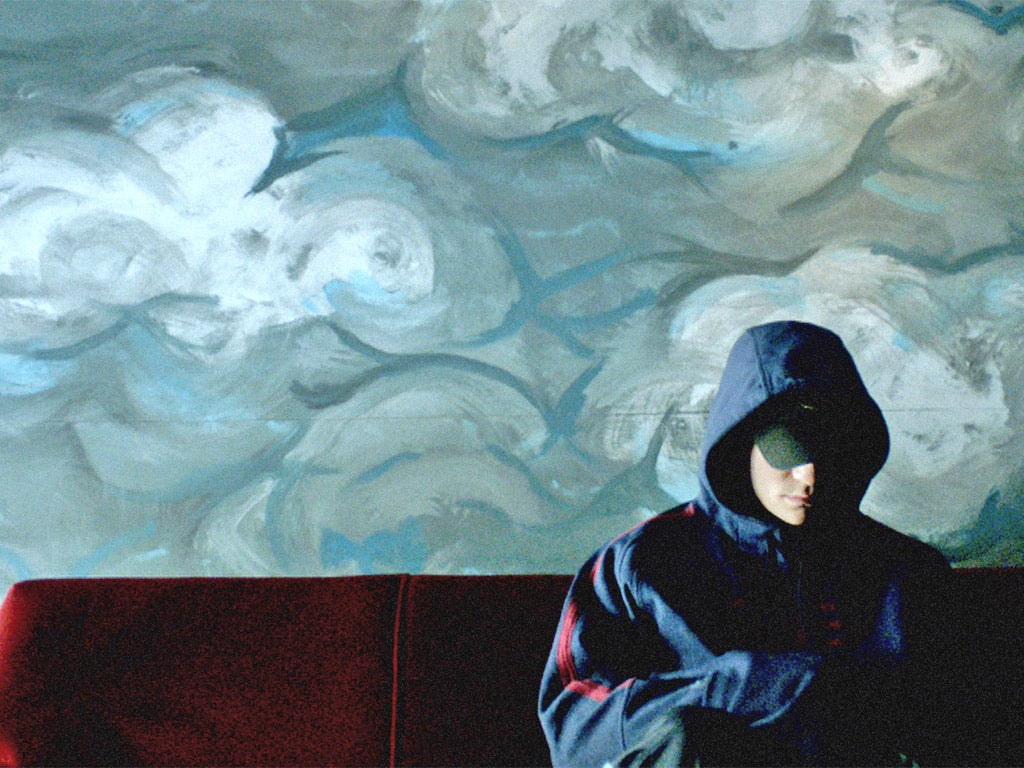Who to believe? Convicted conman Frédéric Bourdin claims film about him is economical with the truth
Frédéric Bourdin, focus of hit documentary The Imposter, lays into 'British sensationalism'

Your support helps us to tell the story
From reproductive rights to climate change to Big Tech, The Independent is on the ground when the story is developing. Whether it's investigating the financials of Elon Musk's pro-Trump PAC or producing our latest documentary, 'The A Word', which shines a light on the American women fighting for reproductive rights, we know how important it is to parse out the facts from the messaging.
At such a critical moment in US history, we need reporters on the ground. Your donation allows us to keep sending journalists to speak to both sides of the story.
The Independent is trusted by Americans across the entire political spectrum. And unlike many other quality news outlets, we choose not to lock Americans out of our reporting and analysis with paywalls. We believe quality journalism should be available to everyone, paid for by those who can afford it.
Your support makes all the difference.He is a convicted conman who was nicknamed "The Chameleon" for his numerous impersonations. But now Frédéric Bourdin claims he is the one who has been duped, attacking the makers of an acclaimed documentary about his most notorious crime for portraying him unfairly.
Bourdin, the title figure of The Imposter, has laid into British director Bart Layton, the production company Raw TV and the distributor Revolver in a series of postings on social-media sites, claiming the film has distorted the story.
The film, released this week, chronicles the true story of the 1994 disappearance of 13-year-old Nicholas Barclay in Texas, who mysteriously reappeared three years later in Spain with darker skin, different coloured eyes and a French accent. While the boy's family and authorities initially accepted him as Nicholas, a private detective uncovered him as Bourdin, a 23-year-old French Algerian. The documentary received a rapturous reception when it premiered at the Sundance Film Festival earlier this year. It went on to garner huge critical acclaim and won the best documentary prize at the Miami Film Festival. Empire magazine called it "the year's most fascinating and frightening doc so far".
Now, Bourdin is the one claiming he has been misled, writing on Twitter: "They are magnifying my life and actions, why won't they leave me alone." He dismissed the film as "British sensationalism", adding: "I told the entire truth… I am not some 'super-con' genius." He dubbed all those involved "British scums", adding: "I deserve respect because the truth is, I committed no crime that horrific... if I was a cold snake as painted in the movie, then I would not know the feeling of love. Love is what I've been looking for my entire life." He later revealed he had not seen the film, but was instead reacting to responses from viewers.
Mr Layton said: "I know he's attacking me and the film, but I'm completely baffled by it. If he'd seen the film and felt it was inaccurate or had twisted his words I'd listen to those accusations. I don't know what he's so furious about. Many viewers don't believe he comes across that badly."
Bourdin filmed his story for the documentary over the course of two days. The director said: "I found him to be compelling, quite charming, with a childlike quality to him and a bit disquieting at times."
Bourdin said he had taken more than 500 false identities in his life, but his only goal was to be placed with a family or a foster home "where I could be loved". He was born in Paris to a French mother and an Algerian father he never knew. He said his mixed-race heritage left him an outcast and he ended up in several juvenile homes. In the wake of his exposure in the Barclay case, he was jailed for six years and deported to France upon his release.
Join our commenting forum
Join thought-provoking conversations, follow other Independent readers and see their replies
Comments